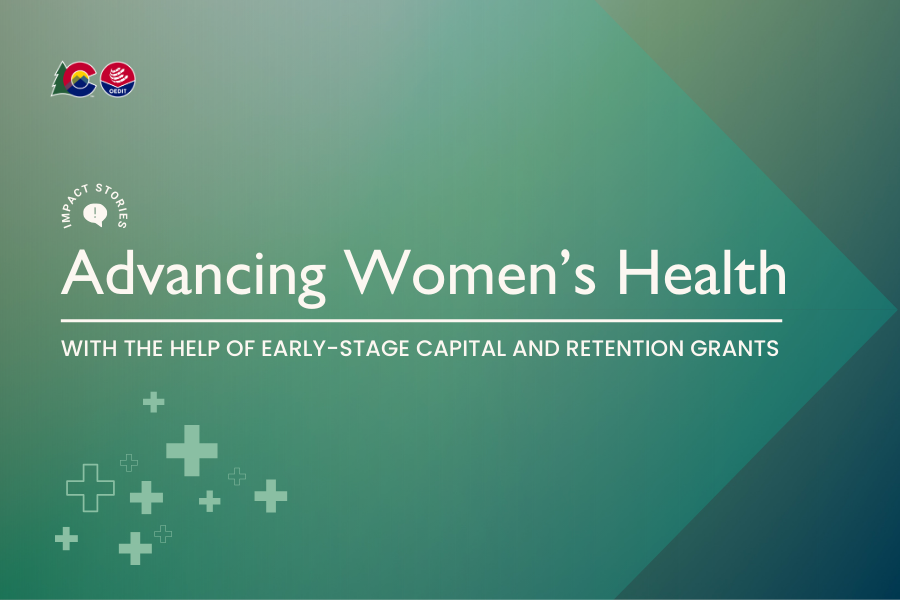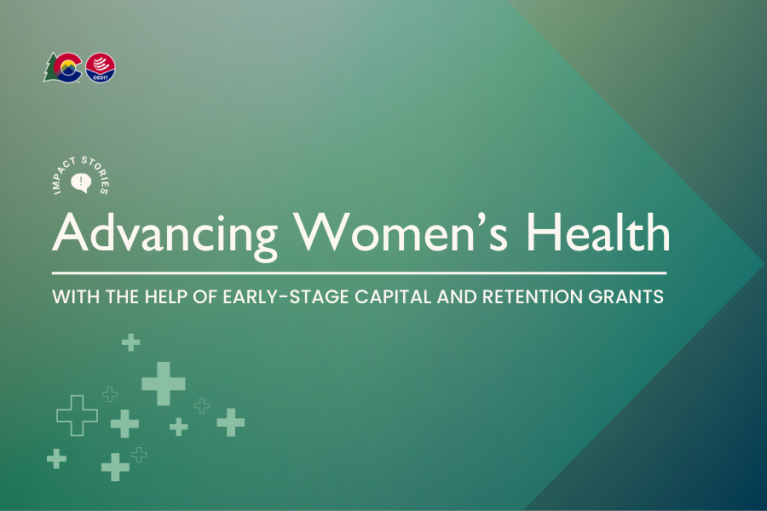
Colorado is home to countless companies creating groundbreaking technological advances. These companies create innovations that not only impact their industries, but also impact lives across the state and beyond.
The women’s health industry is making significant technological strides, with companies’ advancements improving health for women and reducing barriers to medical care.
One important resource helping these companies grow is the Early-Stage Capital and Retention (ESCR) grant through the Global Business Development Division’s Advanced Industries Accelerator (AIA) Program at OEDIT. These grants provide support up to $250,000 to early-stage companies in a variety of industries, including bioscience, that develop and create disruptive or unique technologies in Colorado.
According to Rama Haris, Advanced Industries Senior Program Manager at OEDIT, this program looks to support companies that are early in their development process, at a stage when it can be challenging to attract private investors. The market tends to under-invest in technology in its early stages, so the ESCR grant’s goal is to fill this gap. With the ESCR grant, companies can leverage this funding to find other potential investment opportunities such as federal grants, angel funding or venture capital.
Innovative Recipients Addressing Women’s Health
Over the last two years alone, the program supported eight companies working on women’s health products. We recently caught up with two recipients of the ESCR grant to see how this funding impacted their work improving women’s health.
Based in Erie, Colorado, Proov is an innovative at-home hormone tracker that helps women track and analyze their hormonal patterns. The company’s products include a free app that helps women manage their fertility or menopause symptoms.
OEDIT awarded the company two ESCR grants, one in May 2018 to support the development of their test that identifies hormonal problems causing infertility and miscarriages. In May 2023, Proov received another ESCR grant to implement testing that allows women to determine their phase of menopause.
Amy Beckley, founder and CEO of Proov, originally created Proov as a urine test in 2016 in her basement. With the support of the grants, she shared that the company has been able to take “a simple urine test strip and build it into a platform that now measures four hormones, not just one.”
As a leading medical manufacturer, Boulder-based CaliberMRI is transforming Magnetic Resonance Imaging (MRI) scans to allow for greater research of Alzheimer’s disease and cancers, including breast cancer.
In November 2022, CaliberMRI received an ESCR grant and Callie Weiant, CaliberMRI President, said that this grant “has allowed us to create more sophisticated products needed in the field of breast cancer.”
With the support of the ESCR grant, CaliberMRI developed biomimetic phantoms with MRI properties. These biomimetic phantoms mimic human tissue and when used, can closely match breast cancer. CaliberMRI’s biomimetic phantoms advancements allow for enhanced analysis of MRI scanners and sequences, helping to better diagnose breast cancer.
Colorado’s Impact on the Advancement of Women’s Health
Proov and CaliberMRI both shared that there is a profound impact from being headquartered in Colorado. According to Beckley, locating the company’s headquarters in Colorado gives Proov access to a large talent pool and a lower cost of doing business. Beckley said, “the state does a great job of supporting small companies with funding and business programming.”
Weiant appreciates the collaborative environment and significant resources in the state. CaliberMRI developed its products together with the National Institute of Standards and Technology (NIST), which is based in Boulder. Weiant also shared that CaliberMRI utilizes NIST’s measurement services for their product’s testing.
With support from programs like the Early-Stage Capital and Retention grant, women’s health companies across the state help make trailblazing advances in the bioscience industry. These companies continue to improve care and reduce barriers for those in Colorado, but their impact is also far reaching, extending beyond state lines to change lives.
